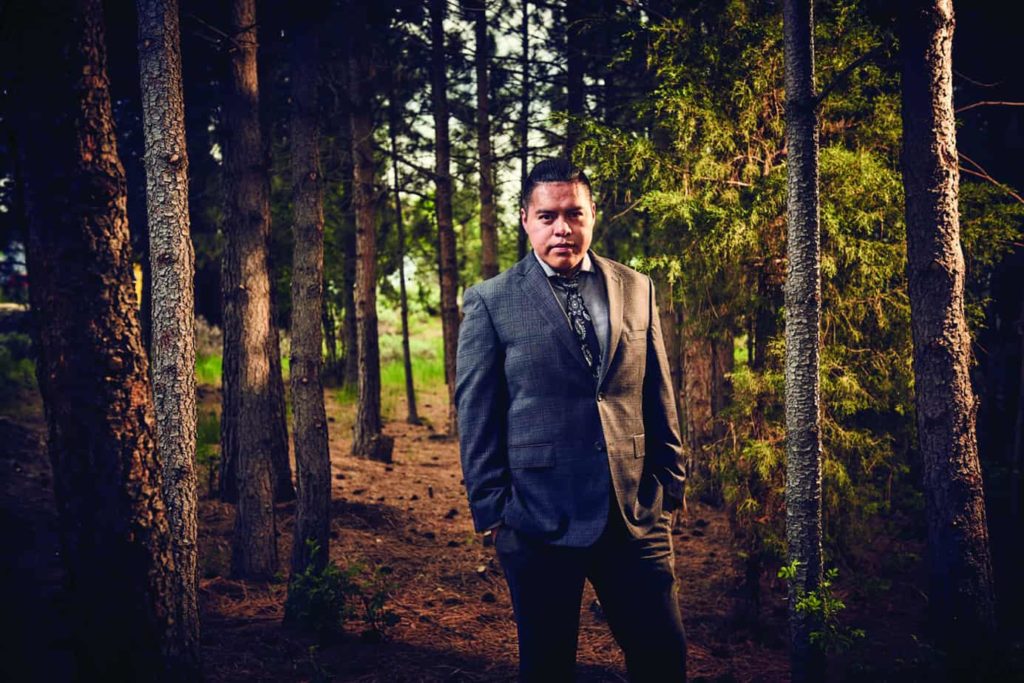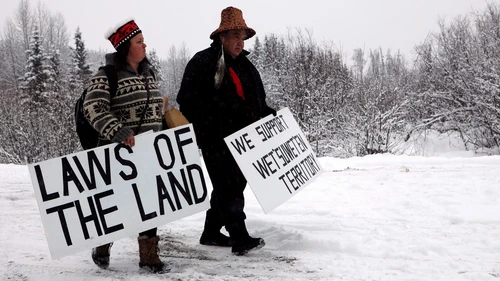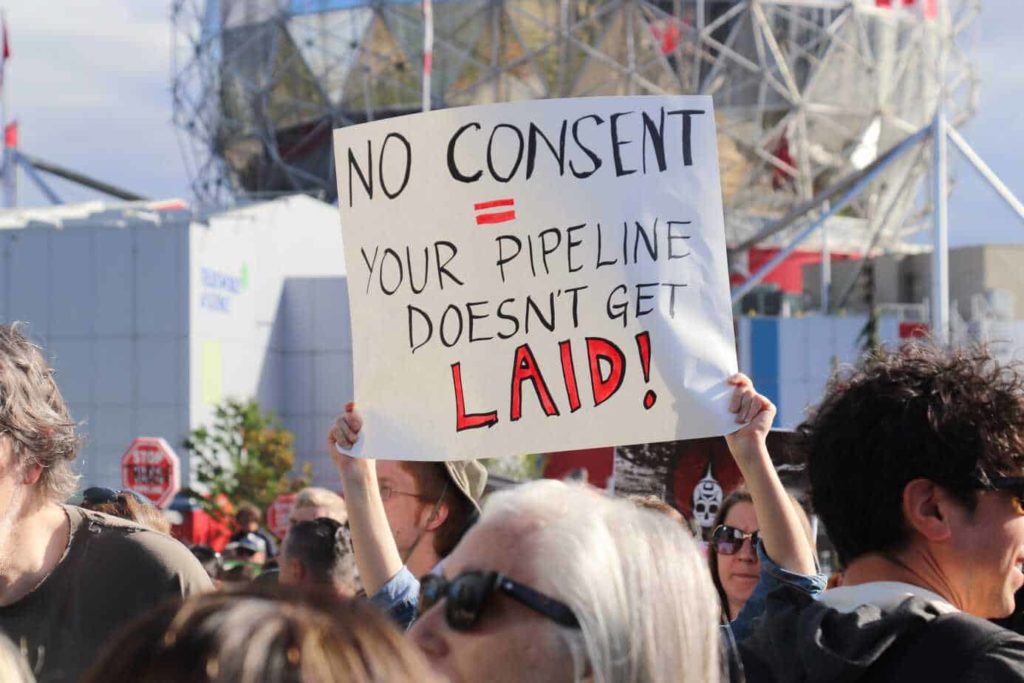In February 2015, when Andrew Genaille walked into his local coffee shop in Chilliwack, he didn’t expect to see two men from Kinder Morgan Canada. They were waiting to meet the elected chief and council of his First Nation. Until then, Genaille thought his leaders opposed the Trans Mountain Expansion Project, whose proposed oil pipeline route ran through their small reserve near Hope.
“When we asked them, they would tell us that no, they weren’t negotiating,” Genaille explains in the lobby of Indigenous and Northern Affairs Canada’s downtown Vancouver offices. “They were absolutely against the pipeline.”
A soft-spoken actor in his early 30s, Genaille sits on the edge of his seat as he talks. He’s eager to share the challenges he’s been facing in his home community, but he also appears tired, worn down from years of bickering with his band council.
“There was a sign on one of the doors to their side rooms that said, ‘Peters First Nation,’ and inside were two white guys in [suits],” Genaille recalls of his visit to the coffee shop. He went out to the parking lot and saw his chief, Norma Webb, and council arriving at the meeting, which they confirmed was with Kinder Morgan Canada. “It was just me stumbling upon it,” Genaille says.
He later learned that the Peters First Nation council had been negotiating a so-called mutual benefit agreement with the Canadian division of the Texan energy titan for much of the previous year. Stretching more than 1,000 kilometres, the $7.4-billion Trans Mountain Expansion Project will twin an existing pipeline from Edmonton to Burnaby. Construction is expected to start in September.
Pipeline negotiations are often confidential between companies and First Nations leaders. But many Indigenous nations have a tradition of making decisions by getting the whole community involved. In its landmark 1997 Delgamuukw decision, the Supreme Court of Canada defined Aboriginal rights as communal in nature, meaning that all members of a First Nation should have a say. So when news of a confidential deal breaks, it’s common for community members to become outraged — frustrated that they weren’t included in the decision.
This culture clash has played out along Kinder Morgan Canada’s planned pipeline route and elsewhere in the province. Besides fuelling division within bands like Peters, it has prompted First Nations members to take their grievances to court, potentially tying energy projects up in the legal system for years. Seven First Nations on the Trans Mountain route are trying to stop the pipeline expansion in court, claiming they weren’t properly consulted. This is the same legal strategy that killed Enbridge Inc.’s Northern Gateway Pipeline proposal last year.
But even within First Nations communities that inked deals with Kinder Morgan Canada, a lack of trust in the community’s consultation process has pushed some grassroots members to create occupation camps blocking access to their traditional territory. All of this strife puts investments in resource development at risk.
So, what can be done? Some experts and band members believe the best way to ensure project certainty is for companies to make informed consent a priority early on, by consulting everyone in the community.
Read the rest of this feature on The Discourse.



